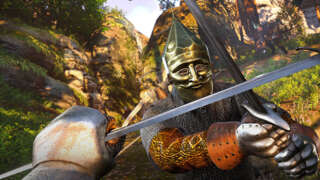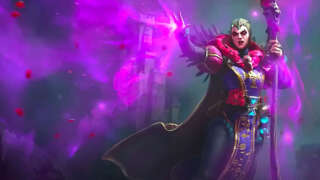In large open-world games, it can be easy to lose yourself in the desire to complete each area as you encounter it--especially if you're aiming to 100 percent the game. When it comes to Death Stranding, however, you should try to get to Episode 3 in the story as quickly as possible.
In the video above, Ben Janca explains why you shouldn't spend too much time in the second episode of Death Stranding. Once you get to Episode 3, the game really begins to open up--offering new areas to travel to, intriguing story details, cool items, a fast-travel mechanic, and the ability to fabricate vehicles. Since you unlock fast travel in Episode 3, you can go back and clean up any lingering missions that you skipped in Episode 2's area. Just try to beeline it to Episode 3.
Death Stranding Guides
- How To Get Death Stranding's Half-Life Crossover Items
- Death Stranding PC Hands-On: The Once PS4 Exclusive Runs Like A Dream
- Death Stranding Walkthrough, Guides, And Tips
- + Show More Death Stranding Guides Links (2)
- How Long Is Death Stranding?
- Can Your PC Run Death Stranding? Minimum And Recommended Specs
If you're looking for a comparison, think of the beginning of Episode 3 as the moment in The Witcher 3: Wild Hunt when you first leave White Orchard and travel to Velen. Or in Assassin's Creed Odyssey when you first set sail from Kephallonia and travel to Megaris. Or in The Legend of Zelda: Breath of the Wild when you first glide off the Great Plateau and land in Hyrule--you get the picture. Episode 3 is the moment in Death Stranding when the game starts showing you why it's special and gives you more opportunities to experiment with its variety of tools and features.
In GameSpot's Death Stranding review, Kallie Plagge wrote, "Death Stranding is a hard game to absorb. There are many intertwining threads to its plot, and silly names, corny moments, and heavy exposition belie an otherwise very simple message. That comes through much more clearly in the game's more mundane moments, when you find a desperately-needed ladder left behind by another player or receive a letter from an NPC thanking you for your efforts. It's positive without ignoring pain; in fact, it argues in both its story and its gameplay that adversity itself is what makes things worth doing and life worth living. It's a game that requires patience, compassion, and love, and it's also one we really need right now."



